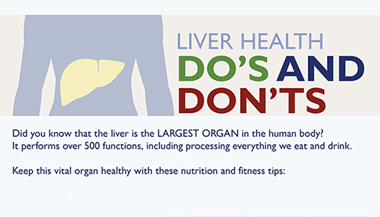Bile Duct Cancer Cholangiocarcinoma Treatment
Destroying the tumors is the best chance to cure bile duct cancer. Treatment often depends on the size and location of the tumors. Treatment options include:
- Surgery
- Endoscopic therapy
- Radiological therapy
- Liver transplantation
- Other treatment approaches
Bile Duct Cancer Treatment: Surgery
Surgical removal of tumors is the only treatment option that offers the potential for a cure. Surgical approaches have become increasingly more aggressive as doctors have learned that the more aggressive the surgery, the higher the chance of a cure.
Surgery for bile duct cancer involves a major liver resection. Your surgeon will remove the entire tumor. The exact procedure will depend on the location of the tumor and how advanced the disease is.
Survival rates are higher when the surgery is performed in a specialized institution involving a multidisciplinary team. Ideally, a surgeon, oncologist, endoscopist, interventional radiologist and supporting staff are all involved in the surgery. At Johns Hopkins, this is the team we assemble for bile duct cancer surgery.
Bile Duct Cancer Treatment: Endoscopic Therapy
We may perform endoscopic biliary dilation if you are not a good surgical candidate or as one of the steps before surgery. During an endoscopic biliary dilation:
- Your gastroenterologist inserts a special side-viewing endoscope to access your biliary duct.
- Once the endoscope is in place, an inflatable balloon or endoscopic dilators is inserted, using a guide wire to ensure correct placement.
- After dilating the ducts, self-expanding stents may be placed into the ducts to maintain the benefit
Bile Duct Cancer Treatment: Radiological Therapy
A specialist called an interventional radiologist may perform a procedure called a percutaneous transhepatic palliative biliary dilation. Openings in the bile ducts are made in order to insert catheters into the ducts.
These catheters allow bile to drain into the duodenum. You will need to undergo this procedure at regular intervals in order to exchange the stents, which will prevent infection. This is often an option for patients who are not surgical candidates.
Bile Duct Cancer Treatment: Liver Transplantation
If bile duct cancer cannot be removed by surgery and does not have local invasion, liver transplant can be an option and usually gives the best long-term survival benefit. The patient is enrolled to a special liver transplant protocol to be evaluated whether he or she is a suitable candidate. During a liver transplantation, your surgeon removes your entire liver and replaces it with a healthy one. The liver may come from a donor who has died, or a healthy person may donate part of his or her liver for you. If you receive a liver transplant, you will need to take anti-rejection medication for the rest of your life. Learn more about liver transplantation.
Bile Duct Cancer: Other Treatment Approaches
Chemotherapy and external-beam radiation therapy, standard treatment approaches for other cancers, are not effective against bile duct cancer. However, we may recommend one of these alternative courses of treatment:
- Internal radiation therapy: Internal radiation is when a radioactive seed is seated directly on the tumor. You may receive this treatment following surgery.
- Endoprosthesis: If the cancer is impossible to remove surgically, we may recommend placing an endoprosthesis across the tumor. This is a stent that allows the bile to drain. It does not affect tumor growth but does improve symptoms.
- Photodynamic therapy (PDT): PDT is a new therapy that destroys tumor tissue. You receive a photosensitizer that sits in the tumor tissue. The photosensitizer itself is nontoxic; however, when it is activated by light at a certain wavelength, it becomes toxic, destroying the local tissue. PDT is a promising new approach for inoperable bile duct cancer.
- Immunotherapy is a new cancer treatment approach that uses drugs, vaccines and other therapies to activate the immune system’s natural defenses so it can fight cancer. There are not yet any FDA-approved immunotherapies for bile duct cancer, but researchers are actively conducting clinical trials. Learn more about cancer immunotherapy.




